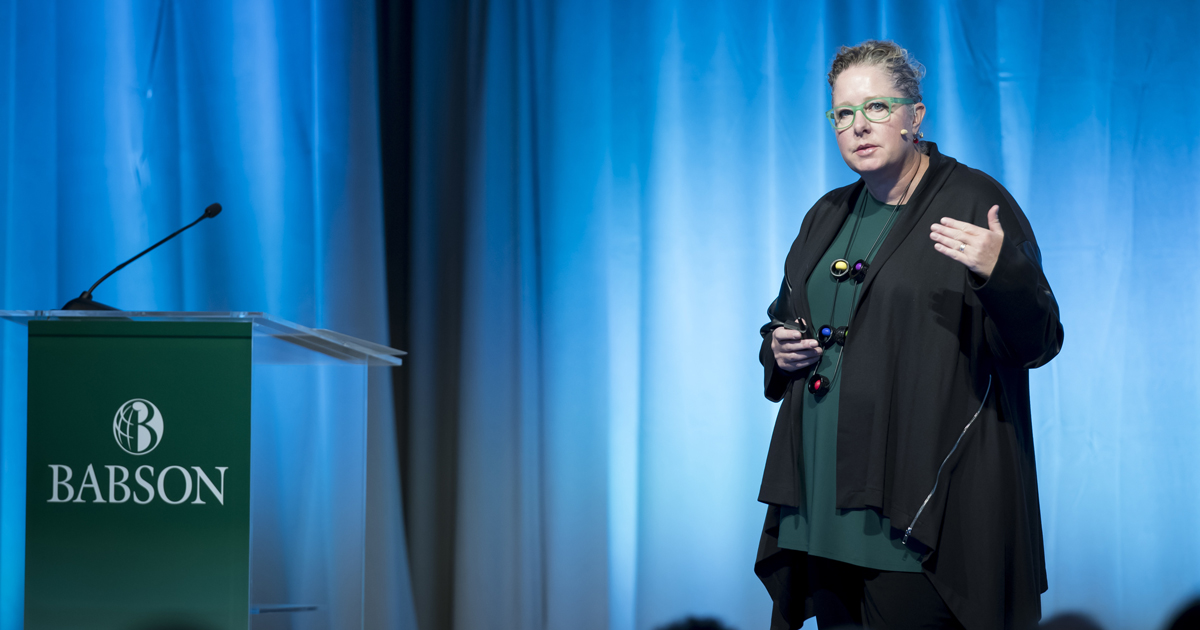The Future of Work Is Learning

Heather McGowan MBA’01 travels the world speaking to leaders and organizations about the future of work. “She’s smart and she’s real,” says Babson President Stephen Spinelli Jr. MBA’92, PhD.
During the Centennial Celebration, McGowan brought her perspective on the future of work to a rapt Babson audience. “In the past, we learned once in order to work. In the future, we must now work in order to continuously learn,” she said.
Changing Times
One of the keys to understanding the future of work is the fact that people are living much longer and technology is changing much faster than at any other time in history. “Now, you’re going to have to absorb four or five different paradigm shifts in a single generation,” says McGowan.
Simultaneously, cultural and social norms are shifting even faster than technology, affecting our collective identity. “We’re going from a white majority to soon being a white minority; from Christianity to a plurality of religions; from a rural mindset to predominately living in cities,” McGowan says.
It used to be easy to answer the question “What do you do?” because you could remain with one company throughout a career. Today and in the future, McGowan sees that fixed employee identity morphing into something she calls “a portfolio of self-expression.”
Changing Work
McGowan sees the effect of automation and atomization across industries. Tasks that are routine and predictable are being automated, and those that are discrete and automated she describes as atomized (think of Uber, for example). Consequently, “we’ve been lunging at tech skills,” says McGowan, “like if you just learn coding, you’ll be robot-proof.”
She argues that human skills are more valuable in the long run. Unlike tech skills, human skills including time management, teamwork, communication, flexibility, agility, and adaptability all appreciate with time and experience.
These uniquely human skills and traits are what makes you better at your job, and will be key to career growth in workplaces of the future. Here’s how McGowan thinks about future career trajectories. “You have to start with your current role. Shed the automated and atomizeable parts. Ask yourself how you’re going to deepen your knowledge and expand your skills. This, then, becomes your next role. And, then, rinse and repeat.”
So What?
According to McGowan, the winners in the future of work share a mindset, not a skillset. It’s characterized by an understanding that learning is a lifelong job. “It’s a shift,” McGowan acknowledges, “from a value you bring mindset or resume mindset, to a value you create mindset.” It means not necessarily having the right answers, but always asking questions and making connections.
Educational institutions have an important role to play, too. “The job of higher ed needs to be helping people understand their superpowers, and how they can apply those gifts today,” says McGowan. “This is what will allow people to navigate across industries and adapt to change.” In the future of work, it’s not about what you want to be anymore, it’s about how and why.
Posted in Insights



